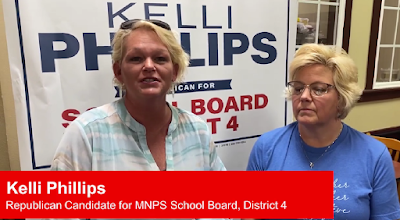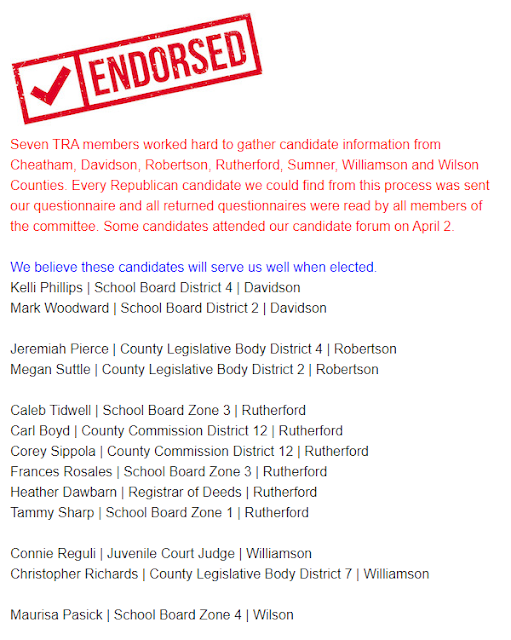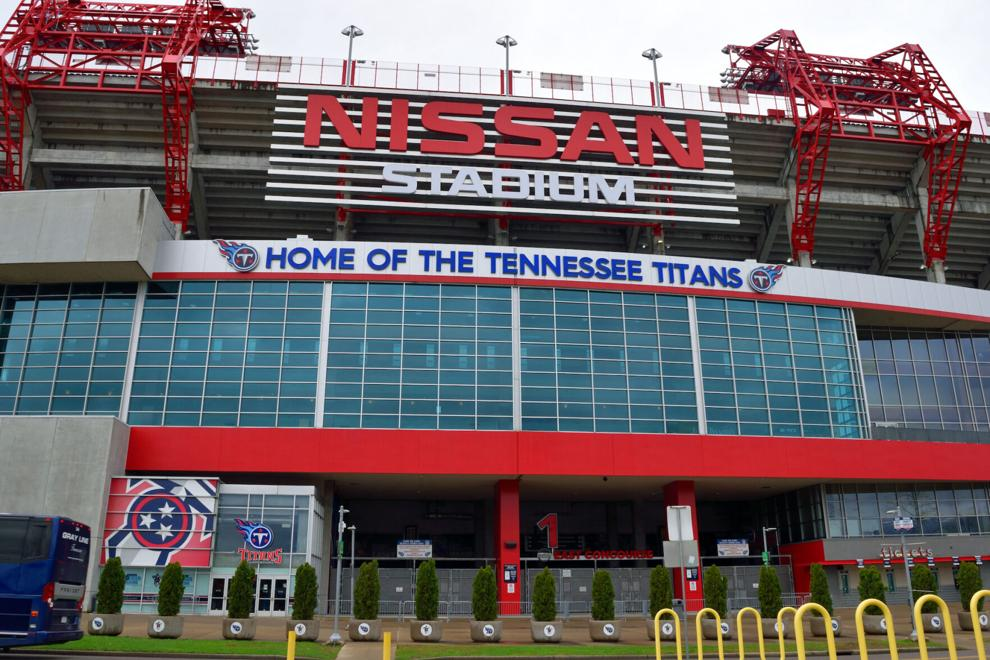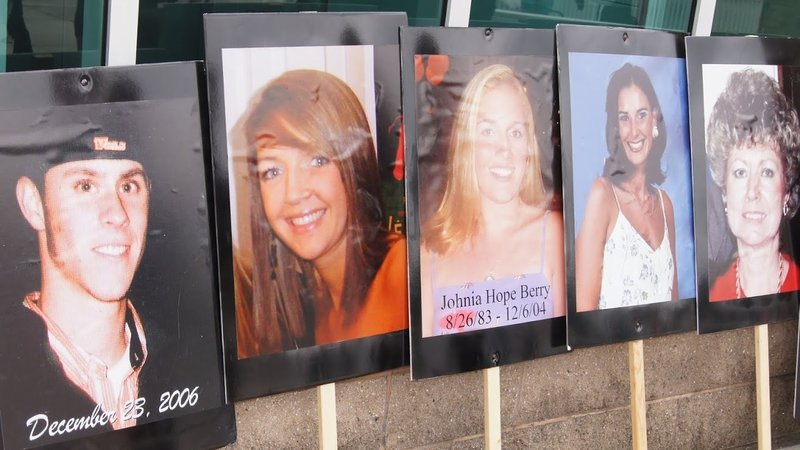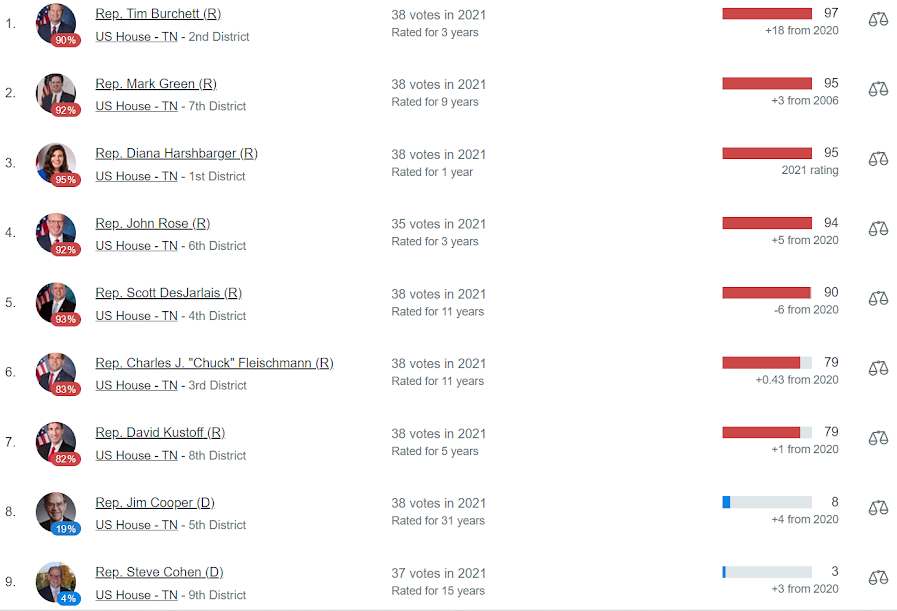John Cooper, Mayor, Metropolitan Government of Nashville and Davidson County
Preamble
Vice Mayor Shulman, Deputy Pro Tem Withers, council members, my fellow Nashvillians…I’m honored to join you today at the Southeast Community Center for the 59th annual State of Metro.
Getting through Crisis
In my first State of Metro address, delivered to an empty Council chamber two years ago, you and I faced a “crisis budget” as we dealt with the first wave of the pandemic…on the heels of a tornado that ripped through neighborhoods from North Nashville to Hermitage.
Already on shaky financial footing thanks to years of spending down reserves, the pandemic threatened to bring Nashville to its knees. We were facing the greatest set of challenges in Nashville’s history. We believed we would get through them and be a stronger city on the other side. We did. And we are.
Twelve months later, at our second State of Metro, we gathered in the Music City Center, with an “investment budget” signaling Nashville’s economic rebound. Our convention center doubled as our largest vaccination site, shouldering our recovery one shot…one arm…at a time. In Nashville, we recognized that the vaccine was the turning point; we ended all COVID capacity restrictions a year ago…once the vaccine was available to every adult.
Creating a Successful Recovery
Our economic recovery has been nothing short of remarkable. Davidson County’s unemployment rate has fallen from 16.9% two years ago to 3% today. We have the fourth lowest unemployment rate in the country among all major metros. And we still have the lowest property tax rate of all our peer cities in Tennessee, including Knoxville, Chattanooga, Clarksville, Murfreesboro, and Memphis.
Wells Fargo Economics recently credited Nashville’s “pragmatic approach to managing the pandemic” for our “return to pre-COVID form” and prevention of the economic damage seen elsewhere. That pragmatic management also saved lives. As Vanderbilt predicted, Nashville was able to save a thousand lives.
Nashville thanks Dr. James Hildreth for his steady counsel and the entire Meharry Medical College for partnering with Metro to operate our large-scale free testing and vaccination sites, including one at HCA’s campus. Thank you to Dr. Tama VanDecar of TriStar and Vanderbilt’s Dr. William Schaffner for your expertise. And to Dr. Alex Jahangir for chairing our task force and guiding us through the pandemic. And most of all we are grateful for Nashville’s nurses and health care staff – the frontline heroes of the past two years.
Today, it is our honor to be here in Nashville’s fastest growing neighborhood…the perfect backdrop to tell you about my agenda for Nashville Neighborhoods and Families, which is the heart of our work in the year ahead.
Budget Overview
This budget addresses the most critical issues facing our city. We need smart investments. We need innovation to help us meet new challenges we face. We need effective management in the time of rapid inflation. Yet another challenge we have to face.
My Agenda for Neighborhoods and Families has six core items:
- Investing in our children’s future through education
- Keeping our neighborhoods safe
- Building and preserving affordable housing
- Addressing homelessness
- Improving our city’s fundamental services and transportation infrastructure, and
- Creating a greener, more sustainable city
That is our vision of a city that works…and works for everyone.
What better place to lay out this new agenda than here in Southeast Nashville, where our investments in Mill Ridge Park and a new park off Tusculum Road, a new ninth police precinct, a new Cane Ridge Middle School, and even additional staff at this community center are pieces of what can be a model for live, work, play communities across Davidson County.
This is a budget for full recovery. To take us to the next level. And really deal with city problems. We are going to invest in fundamentals. Fix what has been broken. Underfunded. Not maintained. Not picked up. This is our moment to fix a generation of problems that have been handed down.
Now, thanks to careful financial management, we are in the position to make much-needed investments in our future.
I’m now going to walk you through my ambitious agenda for our neighborhoods. I’ll go over a lot of investments. New projects. Innovative approaches. Improve the many ways government needs to deliver for you and your family.
Education
Now let’s talk about education, the first part of my agenda. Our schools are Nashville’s great engine of opportunity, and also the physical foundation of our neighborhoods. Great public schools require consistent prioritization.
Two years ago, we provided laptops and internet for every student to bridge the digital divide during COVID.
Last year, we made the largest-ever new investment in our schools – $83 million — and it made Nashville’s teachers the best-paid in Tennessee.
The average Metro teacher saw a salary increase of just under seven thousand dollars, helping retain our talented teachers. This past year, 35% fewer teachers left the district than in the year before I took office.
Another Year of Record Investment
One year later, we’re back with even more support for the district -- $91.2 million of new funding. A new record. Consistent prioritization. Sustained commitment for our kids.
Supporting our Support Staff
This unprecedented investment will fund salary step increases and a 4% cost-of-living adjustment. It allows us to bring bus drivers up to competitive wages…fill the more than 150 bus driver vacancies…and get every child to their seat by the morning bell for a full day of learning. Now for every parent who has had your morning disrupted by a late bus, this will help you!
We are also proposing a pay increase for cafeteria workers. And for the para-professionals who support our students with exceptional needs.
Family Medical Leave
We are also delivering something that is, frankly, overdue – paid family medical leave for ALL MNPS employees. I remember meeting with teachers at McGavock High School during my campaign and hearing from them just how much they needed paid family leave.
Teachers and support staff should no longer have to choose between taking care of their own child and a career educating someone else’s. This is a landmark commitment towards elevating and respecting educators in Nashville.
Fixing our finances made this investment possible.
Investment in the Learning Environment
With our investment, supplemented by President Biden’s COVID relief package, the district has provided additional social-emotional support to facilitate learning.
Advocacy centers in every elementary school. Restorative practice programs in middle and high schools to de-escalate conflicts. Mental health counseling, more social workers, and an expanded Community Achieves program to provide wrap-around services to students and their families. Deputy Mayor Haywood, I know this is something you’re deeply passionate about, as a former teacher.
Better School Facilities
And over the past two years, we made the largest capital investments ever in our school facilities across the county…$397 million…including the new James Lawson High School in Bellevue and $115 million in chronically underfunded electrical, roofing and HVAC repairs, including air quality improvements at 75 schools last year. We are upgrading classrooms across the district, from a new middle school in Cane Ridge to a new elementary school in Goodlettsville.
I’m proud of what we’ve accomplished with the largest investments in education in the history of our city. Our commitment to you is that we will keep providing our principals, teachers and support staff with the tools and resources they need to make the next generation of Nashvillians the most successful one yet.
Community Safety
In addition to great schools, kids need safe homes and safe neighborhoods to learn and play. Studies show that growing up in a neighborhood that experiences a homicide reduces kids’ test scores.
Chief Drake has re-created the central homicide division with 28 detectives and their supervisors working to bring the most serious offenders to justice. Last year, we funded a new precinct. This year we added 400 new vehicles and equipped 1,400 officers with the newest technology to keep our officers safe and reduce the use of deadly force.
Today, we’re proposing:
- the hiring of 157 additional emergency response personnel to meet the community safety needs of a growing city.
- 40 more 9-1-1 dispatchers to meet national standards for respond times while handling half a million emergency calls per year.
- 46 more police officers to staff our new ninth precinct, which will break ground here in Southeast next Spring.
- 8 new positions for crime analysis, expanding the Evidence Processing Unit’s capacity.
- Another 31 firefighters, helping us progress toward the national standard of 5 firefighters per company.
- And 36 more EMS staff, including three new Medic Units with ambulances to handle an 18% increase in medical calls year-over-year.
National Model for Crime Prevention
Here in Nashville, we are innovating to prevent crime. Last year, Council approved our proposal to create a $2 million Community Safety Partnership Fund led by Ron Johnson, Metro’s first Community Safety Coordinator. Ron has brought together more than 40 community groups, mainly grassroots nonprofits led by people of color such as Cintoria Franklin, founder of Pass the Beauty. I also want to thank Dawn Stone for her partnership in this work through the Center for Nonprofit Management.
15 groups have received grants, and the Community Safety Advisory Board is now considering 17 applications for grants designed to serve the Napier-Sudekum neighborhood. And on Friday, the application will close for a $1.75 million Violence Interruption pilot. 39 groups have requested the application through the Hub, so Ron you and Public Health have your work cut out for you.
The nation is noticing our work. A few hours from now, in Los Angeles, the US Department of Justice is announcing a new Knowledge Lab, to support cutting edge law enforcement. Nashville was the first city invited to join the program.
Leading the Way in Mental Health Response
Nashville is also on the nation’s leading edge in how we respond to those experiencing a mental health crisis by prioritizing treatment, not criminalization. Last year, we created Partners in Care, an innovative co-response program that pairs police officers with mental health providers. It’s working. In the first 9 months, Partners in Care teams responded to 1,135 calls but made just 43 arrests. That’s an arrest rate of just 3.8%. Instead of taking people to jail, officers and mental health professionals are working together to connect people to the care they need.
And we are doubling the Partners in Care pilot from North and Hermitage Precincts to Central and South Precinct, in coordination with our partners at the Mental Health Co-op.
Two months ago, the US Department of Health and Human Services recognized Nashville as an emerging national model in this area. HHS will provide technical assistance to develop non-law enforcement responses to behavioral health calls that do not require police. Working with Judge Melissa Blackburn, District Attorney Glenn Funk, Public Defender Martesha Johnson and many others, we are also launching a new Mental Health Court effort to care for repeat misdemeanor offenders who have been deemed incompetent to stand trial.
We’ve made a generation of progress in just two-year’s time. And we are just getting started. This is Nashville at its best: smart, compassionate, and effective.
Homicides Down, Property Crimes Up
Last year, other peer cities saw increases in homicide. Memphis, Louisville, Austin, Indianapolis, and many more – record homicides. Not here. In 2021, homicides in Nashville fell by 9 percent.
Despite our progress, we still face real problems. Gun violence has risen significantly over the past five years. Property crimes are up 17.5% this year. But we are responding with additional resources and new approaches.
Using Technology to Extend our Safety Efforts
Earlier this year, Council approved a 6-month pilot of License Plate Reader cameras. This technology will give Nashville a valuable tool to combat hard-to-solve crimes like auto thefts, kidnappings and hit-and-run crashes – not traffic violations. With auto thefts up 22% year-over-year, this new tool will help make our streets safer.
Our approach strikes an appropriate balance by protecting privacy. License Plate Reader cameras have raised some concerns, but we are taking a common-sense approach that begins with a 6-month trial assessment. If shown to be effective and equitable, we will join our surrounding communities and peer cities that are already using LPRs effectively.
Through investment, more first responders, and new approaches, we are making Nashville a safer community.
Affordable Housing
The third part of my agenda is affordable housing. Others so value what we have in Nashville that our property values are climbing. But Nashville is our city. We must get housing right. Nashvillians must be able to afford to live and work here. To raise their children here. And have their children find opportunity here.
My agenda’s approach to creating and preserving affordable housing is threefold: invest in what works, increase staffing to meet the challenge, and innovate through new approaches.
Record Investment (5x) in Affordable Housing
In my time as Mayor, we have taken major steps to address Nashville’s affordable housing need…including directing FIVE TIMES the rate of investment to building and preserving affordable housing. Let me say that again. Five times the rate of investment.
Delivering on Task Force Recommendations
Our Affordable Housing Task Force, co-chaired by Ed Henley and Mick Nelson, made 9 key recommendations in June to be accomplished over the next 3 years…we are delivering on 7 of those 9 recommendations.
Professional Division of Housing
For the first time, Metro has a dedicated Division of Housing – a professional office embedded within the Planning Department. We are making housing central to land use and development.
I committed to “bringing real expertise to housing policy.” We have that expertise in our new Housing Director, Angela Hubbard. And we are expanding our division of housing staff to coordinate development and response. Our Division of Housing is guiding the greatest era of affordable housing investment in Metro’s history.
When you combine all of our housing efforts: our previous operating budgets, American Rescue Plan funds, our capital spending plan, use of a grant from Governor Lee, and donations we secured from private developers, we have invested over $100 million in the past two years.
Today, I am proposing increasing our operating budget funding for housing to over $20 million annually and supplementing that with another $30 million from the American Rescue Plan, bringing our total affordable housing investment in three years to over $150 million. Remember, previous funding for affordable housing was roughly $10 million per year.
Delivering a Long-Standing Goal: A Dedicated Revenue Stream
We are increasing the Barnes Fund to $15 million in this budget, 50% higher than when I took office. One key recommendation of the task force, and a commitment I made as a candidate, was to dedicate recurring revenue streams for affordable housing.
Today, I’m excited to announce that I’ll work with Metro Council Affordable Housing Chair Sean Parker on legislation to designate, in perpetuity, the Convention Center’s $14.3 million payment in lieu of taxes as the primary dedicated source of funding for the Barnes Fund. This helps answer the long-standing community request for dedicated revenue for affordable housing.
In addition to our greater investment of public funds, private developers have committed their first-ever donations to the Barnes Fund. And we are implementing new approaches to creating and preserving affordable housing.
Expanding the Affordable Housing Toolkit
Over the past two years, we have also significantly grown our housing policy toolkit. This spring we are launching our new participation agreement initiative that incentivizes private market builders to create more affordable units. And Metro Council soon will vote on a new tax incentive program to promote mixed-income developments, which will generate an estimated 300 units of affordable housing. I want to thank lead sponsor Councilwoman Burkley Allen for her partnership in this effort.
Market Pipeline Can Serve the City
This new approach uses private sector housing construction as an engine of affordable housing creation. There are 21,000 apartments currently under construction in Nashville, which represents 13% of our total current inventory – this rate of unit creation is the highest in the country. This new supply will help meet overall housing demand, but we need new tools, incentives, and resolve to harness this production to create affordable units for Nashvillians.
Partner with MDHA
And, finally, our Division of Housing will create a central database with every income-restricted unit in Nashville – including MDHA’s units. Our renewed partnership with MDHA is paying off, thanks to its deeply knowledgeable new leader, Dr. Troy White. Earlier this year, we used $15 million in ARP dollars to accelerate the construction of 1,100 units at Envision Cayce. This investment is part of collaborating to create sound financial plans to finally fulfill long-standing redevelopment promises.
Homelessness
The fourth pillar of my agenda for families and neighborhoods is helping our unhoused neighbors get back on their feet. Individuals and families experiencing homelessness are facing a crisis all across the country, with chronic homelessness up 20% nationwide over last year. The broken national safety net has not been properly addressed for a long time.
$50 Million Commitment
Councilmembers, we will bring for your approval a bold $50 million plan – unprecedented in Nashville’s history – to use American Rescue Plan funds to help our most vulnerable residents get off the streets and into housing.
Housing First
Today, I am committing us to being a “Housing First” city. An array of safe permanent housing options with wrap-around support services will act as the foundation for people to rebuild their lives.
“Housing First” …because each of us needs a safe place to sleep before it is possible to focus on getting a job, addressing substance use issues, or receiving mental health services
In the past year, we housed about 2,000 Nashvillians living on the street or in shelters. Next month, we break ground on a 90-unit Permanent Supportive Housing complex. We are working with national experts on comprehensive, client-centered, low-barrier solutions that focuses on individual needs.
To address homelessness, again we are taking a three-pronged approach: invest, increase staff, and innovate with new solutions. Our $50 million plan to address homelessness will be Nashville’s largest-ever improvement to our safety net.
Permanent Supportive Housing
Half of the funds will purchase permanent supportive housing units and deeply affordable housing inventory in mixed-income developments over a three-year period. In order to support choice and meet need where it exists, we will take a “scattered site” approach, with units built in multiple areas of the city.
Success Requires Enhanced Programmatic Help
Nine million dollars will fund “Housing First” supportive services including case management, outreach, and improving access to disability and health care benefits. Another nine million dollars will supply low-barrier gap housing for individuals and families on their path to permanent housing. We will deploy housing incentives, landlord engagement and housing navigators to increase landlord participation.
More Homeless Impact Division Staff
My proposed budget includes more Homeless Impact Division staff, which we have increased 92% over our past two budgets. More field staff will coordinate increased outreach efforts and service delivery across four quadrants of the city.
Fixing Fundamentals and Improving Transportation
The next part of my agenda is improving core city services like trash and transportation to make Nashville a more beautiful, livable city.
Core City Services
Trash: One of the biggest quality of life challenges in our city in the past few months has been trash collection, a service complicated by COVID-induced supply chain issues. We are allocating $10 million in this year’s budget to increase reliability and make sure that we take care of this fundamental service.
Our Waste Services division took extraordinary measures to stabilize operations despite the bankruptcy of Red River, Metro’s primary trash collection vendor since 2004. Metro Waste Services crews worked 12-hour shifts to cover for Red River’s failures. We aggressively fought Red River in bankruptcy court and hired two new emergency vendors to take on routes and address delays. We have turned the corner. Missed collection complaints to HubNashville are now back to pre-crisis levels.
Pothole Repairs in 72 Hours: On our roads, we are adding a fifth crew to repair potholes – in driving lanes, crosswalks, and bike ways. We are investing in infrared patching technology for permanent repairs. N-DOT crews have patched 15,400 potholes already this year. The time between your report of a pothole to HubNashville and NDOT patching it is less than 72 hours. We are also in constant contact with TDOT to report potholes on the state roads they oversee.
Cleaner Streets: It’s also time to make Nashville’s streets and alleyways cleaner. My budget includes $3 million to clean up our roads, bikeways, and our alleyways – sweeping streets, clearing brush, and keeping trash out of storm drains and groundwater. We are adding a fourth and fifth litter crew and an alley maintenance crew to boost NDOT’s already remarkable work. NDOT is on pace to collect more litter this year than in the past four years combined.
Traffic and Transportation: Traffic and transportation can make or break a fast-growing city like ours. Instead of allowing growth to determine our destiny, we must keep improving our streets, intersections, and transportation system to keep up with our growing needs.
Transportation Plan: Two years ago, we came together as a community to create and adopt the Metro Transportation Plan. Our people-first plan for traffic and multi-modal transit is as practical as it is ambitious. We finally have a strategy for solving our infrastructure problems, in neighborhoods and along busy corridors.
And our planning has paid off. Since Council adopted the Transportation Plan, Nashville has secured nearly $44 million in additional state and federal transportation grants. Including full funding for a Traffic Management Center.
WeGo / MTA: 92% of Nashvillians live within a half mile of a Nashville Transportation Plan project. And thanks to over four million of new funding in 2021, WeGo has installed 19 bus stop shelters since last summer and 13 more are in process, including four on Buchanan Street.
As part of our initial round of Nashville’s first-ever participatory budgeting program in North Nashville and Bordeaux, WeGo is adding bus shelters at six different intersections this summer: Jefferson & DB Todd; Alameda & Albion; County Hospital & Hospital Lane; Revels & Whites Creek; Buena Vista & Kirk; and 10th at Ponder Place.
WeGo is back to 107 percent of pre-pandemic service levels thanks to greater investment. This includes a new crosstown route and frequency upgrades to several routes.
Properly Staffing our Department of Transportation: My budget includes 45 new positions at our new Nashville Department of Transportation, to improve maintenance, safety, and engineering – all functions that have been chronically understaffed since the great recession.
Sidewalks: Nashville needs more sidewalks. This fiscal year, NDOT has added over 20,000 linear feet of new sidewalk. Total sidewalk completions are up over 10%. And costs are down. Brick Church, Cane Ridge, Maplewood, Herman, West Hamilton, and Andrew Jackson are projects getting done in the next 7 months. And we are adding a new crew to repair broken sidewalks and curbs faster.
Vision Zero: We are also adding capacity to implement NDOT’s Vision Zero Plan. Safety projects across Nashville will save pedestrian lives. We have scaled up traffic calming. NDOT began working with 49 additional neighborhoods late last year. And Westchester Drive, O’Brien Avenue, and 23rd Avenue North are traffic calming projects being completed in the next few months. As a result of participatory budgeting, Bordeaux Hills will get new speed bumps in May.
A city on the move keeps her people on the move – safely and efficiently. We’re working to help Nashvillians get to work, to school, or to one of our 184 parks more safely and easily than ever before.
A Greener, More Sustainable City
Which brings me to the final part of my agenda, making sure we leave behind a greener and more sustainable city. When I ran for mayor, I committed to increasing access to parks in neighborhoods across Nashville. For years we’ve had undermaintained public parks. Now, we are catching up on a generation of need through long overdue investments.
Parks and Greenways;
Investing in Green Spaces as We Grow: Our 2021 Capital Spending Plan included a record $85 million for Metro Parks. We funded major projects at sites like Lockeland Springs, historic Fort Negley, Trinity Hills, and along the Cumberland riverfront. We also worked with Councilwoman Sandra Sepulveda to acquire 10 acres for a new park off Tusculum Road in Southeast Nashville, the first Metro Park in District 30.
Finally Maintaining Our Parks: A better park experience enhances quality of life for families all across Davidson County. My budget includes 46 new Metro Parks positions to maintain our green spaces, staff our community centers, and expand our greenways while keeping them safe.
New aquatics staff at the Napier Community Center will finally provide neighborhood residents with a year-round community pool, which will reopen this fall.
Our community centers will increase programming for differently-abled adults – with eight new instructors. Here at Southeast Community Center, three new employees will expand teen programs, outdoor sports, and transportation.
And again, thanks to participatory budgeting, the Looby Community Center is getting a much-needed air conditioning system. Hartman Park will have outdoor bathroom facilities and a new playground. And a new playground and pavilion are coming to Bordeaux Gardens.
Our new 600-acre Mill Ridge Park and 800-acre Ravenwood Park need maintenance. And in this budget, we’re delivering. Great parks require weekly mowing and daily service for bathrooms and trash collection. We’re making that happen.
Greenways: We are investing in our neighborhood greenways throughout Davidson County, including along the Cumberland River. Five new professionals will acquire the necessary rights-of-way and acreage and expand out our county-wide greenways at a pace that matches Nashville’s growth.
We are also making our parks and greenways even safer for Nashville families. Following best practices, we are creating a Nashville-first, 14-person dedicated bike unit of the Park Police.
Sustainability: From green spaces to going green, we must rise to the challenge of climate change and do our part to minimize our carbon footprint. In February we formally adopted an ambitious 2050 goal: reduce community greenhouse gas emissions 80 percent from 2014 levels. And we have the tools to get it done.
We are greening our power supply with 100 megawatts of solar-generated power. That’s enough to power 1/3rd of Metro government’s energy needs. And we are adding solar installations at Metro Water Services sites.
We established a first-of-its-kind dedicated revenue source for tree canopy restoration across the city – supporting the Root Nashville campaign to plant 500,000 trees by 2050.
But we aren’t stopping there. We are pursuing fleet electrification, energy efficiency programs in Metro facilities, sustainable solutions to solid waste management, and building sustainability and resilience strategies into all new developments.
Working together, we can do our part to leave our planet, and our city, better for the next generation.
Stronger, more Inclusive Community
In addition to delivering historic investments in our classrooms, our streets, our parks, and in core services like trash collection, we are also hard at work making Nashville a stronger community by making it a more inclusive community. Let me give you a few examples.
We are making Metro Government more accessible for immigrants by hiring Spanish and Kurdish speakers at HubNashville – part of a broader language access initiative to provide better services at our 9-1-1 call center, State Trial Courts, the Office of Family Safety, and the Woodbine Health Clinic.
Thanks to Council Member Rutherford’s advocacy, we are adding a social worker focused on Veterans Services. Furthermore, we will appoint a veteran to the Social Services Commission.
We are pushing for gender-affirming health coverage for Metro employees.
We are funding two new investigators for the Community Oversight Board.
We are hiring a city architect to incorporate community feedback and quality design into major projects.
We are hiring a city archeologist to provide in-house assessments of historic sites, including those associated with Native Americans, the Civil War, and early African American neighborhoods.
The Library’s NAZA summer program will serve 1,100 kids.
And for the first time, the Arts Commission will have a full-time equity position.
Finally, we’re working with Councilmembers Jeff Syracuse and Joy Styles to create an Office of Music, Film and Entertainment, housed in the Mayor’s Office, to better support our creative class and protect Music City’s future.
Conclusion
We are the envy of cities around the world. We’re becoming a more dynamic and diverse community. And we’ve bounced back from the pandemic. But we can’t become the victim of our own success.
We’re here today at the Southeast Nashville Community Center because the Nashville we know and love…the Nashville we serve – and want to preserve – is a city rooted in our neighborhoods…in our families.
Good schools, clean streets, safe neighborhoods, reliable city services and sound city finances, affordable housing, world-class parks…live-work-play communities to raise a family in. That is Nashville.
As we grow, we must do so in a way that works for every neighborhood, and make sure no one gets left behind. That requires investing alongside our growth and innovating to keep pace with the challenges presented by our growth.
That is our vision. And that is why I’m so excited to implement my Agenda for Neighborhoods and Families – the guide for our work in the year ahead.
This isn’t easy work, and there’s a lot to do. But I know we’re up for the challenge. Now, let’s get to work.
Thank you.

 Top Stories
Top Stories




